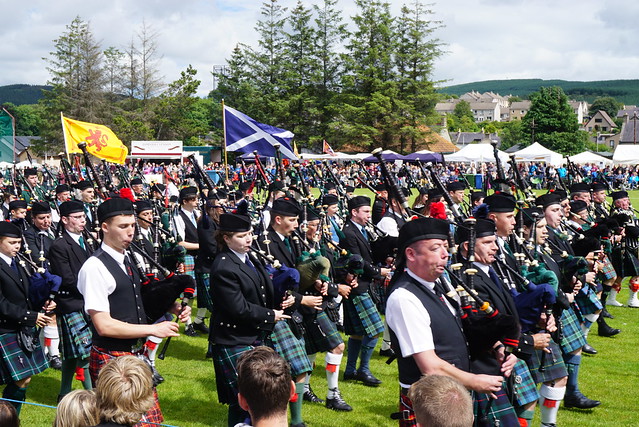Podcast: Play in new window | Download
In this episode we’re looking a the word clan and related things in Celtic languages.
The word clan in English means a group of people descended from a common ancestor, a traditional social group of families in the Scottish Highlands having a common hereditary chieftain, or any group defined by family ties with some sort of political unity [source].
It was borrowed from clann in Irish or Scottish Gaelic, which come from the Old Irish cland (children, family, offspring, plant), from the Old Welsh plant (children, young people, offspring), from the Latin planta (vegetable, sprout, shoot, twig, shrub), possibly from the Proto-Italic *plāntā, from the Proto-Indo-European *pleh₂- (flat) or from the Proto-Italic *plānktā, from the Proto-Indo-European *pleh₂k-/*pleh₂g- (to strike, fast) [source].
Related words in the Celtic languages include:
- clann [kl̪ˠɑun̪ˠ/kl̪ˠɑːn̪ˠ/kl̪ˠan̪ˠ] = children, offspring, race, descendents, clan, followers, plant, lock (of hair),
and planda [pl̪ˠaun̪ˠd̪ˠə] = plant, scion in Irish - clann [kl̪ˠaun̪ˠ] = children, offspring, progeny, clan, lock of hair, curl
and plannt [pl̪ˠãũn̪ˠd] = plant in Scottish Gaelic - cloan [klɔːn] = children, descendent, family circle,
and plant = plant in Manx - plant [plant] = children, young people, offspring, progeny, descendents, followers, disciples, servants in Welsh
- plans = plant in Cornish
- plantenn = plant in Breton
The English word plant comes from the same roots, via Middle English, Old English and Latin [source], as does the word plantain, via Middle English, Anglo-Norman, Old French and Latin [source].
The word clan was borrowed from English into various other languages, including Dutch, French, German, Italian, Polish, Russian, Portuguese and Spanish. It even ended up in Turkish, via French. So the Turkish word klan arrived via French, English, Irish/Scottish Gaelic, Old Irish, Old Welsh, Latin, Proto-Italic and Proto-Indo-European – quite a journey! [source]
More details about these words on Celtiadur, a blog where I explore connections between Celtic languages in more depth. I also write about words, etymology and other language-related topics on the Omniglot Blog.
You can also listen to this podcast on: Apple Podcasts, Amazon Music, Stitcher, TuneIn, Podchaser, PlayerFM or podtail.
If you would like to support this podcast, you can make a donation via PayPal or Patreon, or contribute to Omniglot in other ways.

